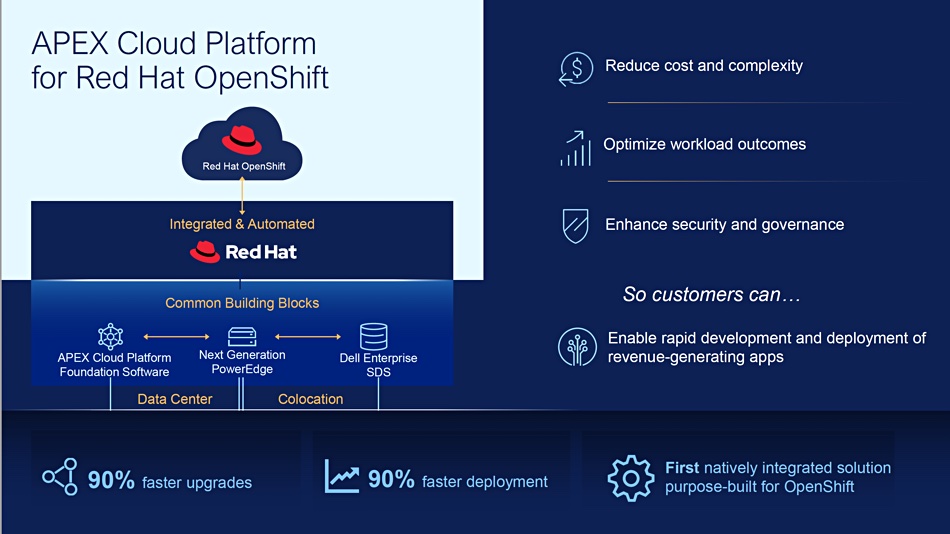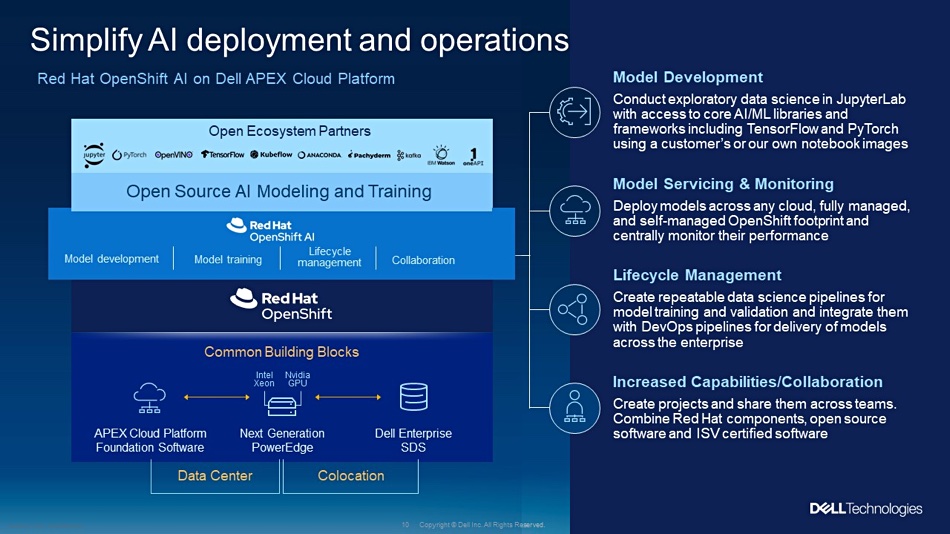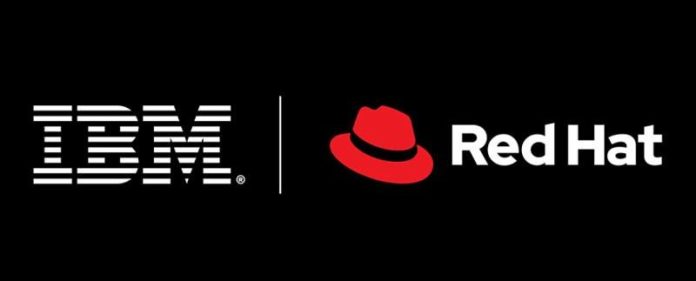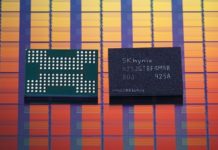Dell has launched an APEX Red Hat OpenShift service allowing users to subscribe to open source container wrangling software in an enterprise-style setting.
Red Hat OpenShift is the IBM-owned open-source company’s container orchestration service. It is based on Kubernetes and works with Ceph open-source storage. APEX is a set of services from Dell where it supplies its compute, storage and networking gear through a public cloud-like subscription model.
A Dell blog we saw pre-publication states: ”Dell APEX Cloud Platform is the first fully integrated application delivery platform purpose-built for Red Hat OpenShift.”
Dell quotes a Gartner prediction that more than 95 percent of global organizations will be running containerized applications in production by 2028. They’ll need a container app infrastructure platform on which to do it and Dell reckons OpenShift is just the job.

This APEX Cloud Platform lets customers deploy, manage, and run containers alongside virtual machines, on-premises. It has been jointly developed with Red Hat. The PowerEdge MC-760/MC-660 servers involved have gen 4 Xeon processors, as you would expect, and PowerFlex software-defined block storage using SAS or NVMe SSDs.
PowerFlex replaces the Ceph storage component. It can be used with Dell APEX Navigator to enable data replication between on-premises and APEX Block Storage for Public Cloud.
The APEX Cloud Foundation software is integrated into the Red Hat OpenShift web console. Dell claims it’s the first integrated application delivery platform for Red Hat OpenShift on the market.
That means updating the components is theoretically simpler, with Dell claiming an up to 90 percent reduction in update time is possible compared to manual updating. Dell and Red Hat engineering collaboration is also said to give customers fast access to patched code. All-in-all its open source software, mostly, presented in an enterprise software fashion with none of the open-source gruntwork visible.
THere are also various Dell services to help customers get up to speed with this software.
AI angle
Dell is also announcing a validated design for Red Hat OpenShift AI on APEX Cloud Platform which offers customers a guide on how to deploy a digital assistant utilizing a Large Language Model (LLM) and the Retrieval Augmented Generation (RAG) framework. It’s a multi-cloud offering and shows how customers can use RAG with their own data – securely – on-prem.

Bootnote
IBM says retrieval-augmented generation (RAG) is an AI framework for improving the quality of LLM-generated responses by grounding the model on external sources of knowledge to supplement the LLM’s internal representation of information. Implementing RAG in an LLM-based question answering system has two main benefits: It ensures that the model has access to the most current, reliable facts, and that users have access to the model’s sources, ensuring that its claims can be checked for accuracy and ultimately trusted.








